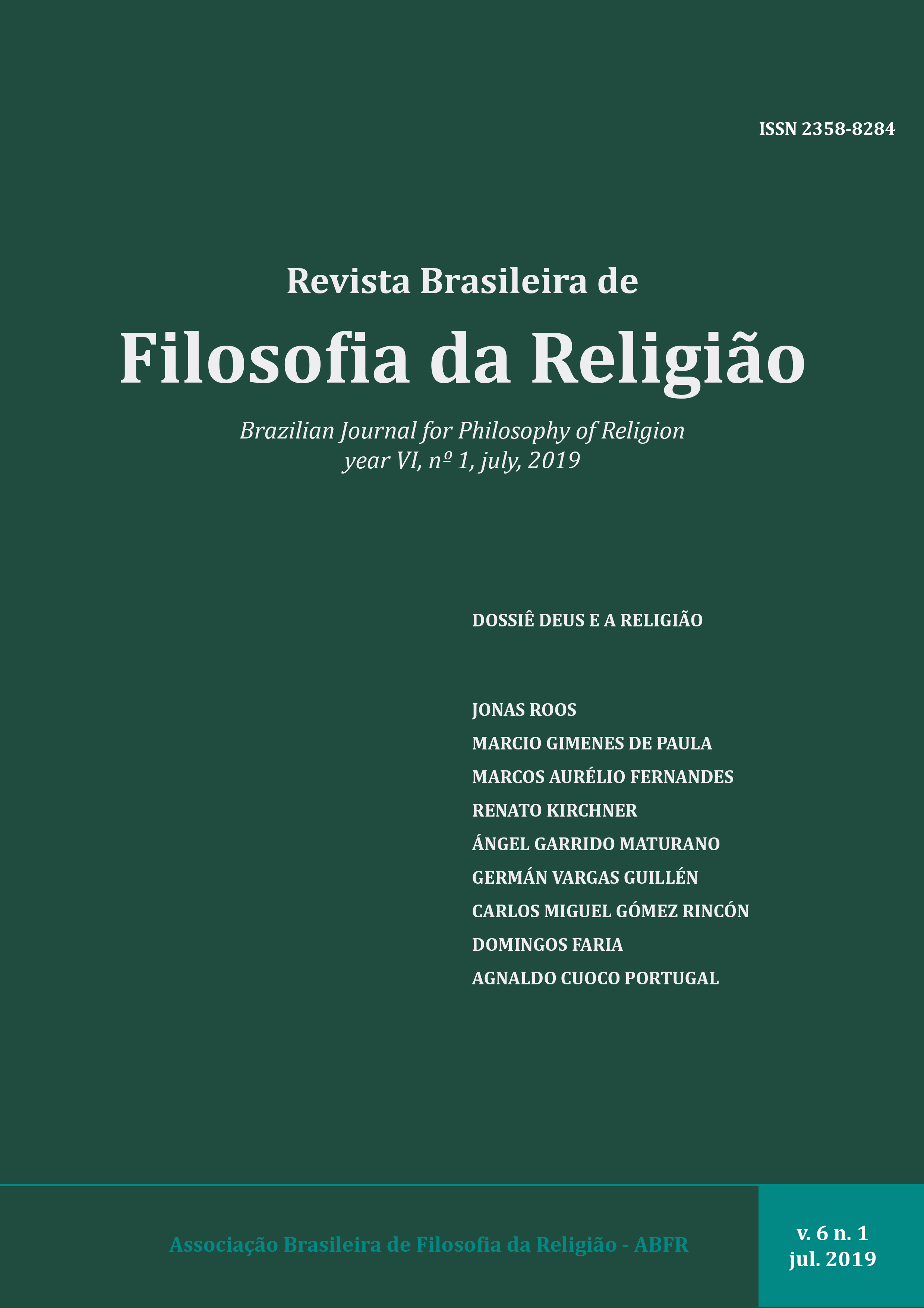FIDEISM AND TRANSCENDENCE
DOI:
https://doi.org/10.26512/2358-82842019e25187Keywords:
Faith and rationality, absolute presuppositions, meaning, religious ambiguity.Abstract
This paper critically explores the identification between faith and the basic trust proper of absolute presuppositions. This identification is a result of the fideistic reading of contemporary criticism to rationality, according to which it has a historically situated and finite character. The first section explores this fideistic reading. The second attempts to differentiate religious faith from the trust we have in what we take for granted. In the final part, it is argued that faith makes it possible a form of evaluation of our basic commitment with absolute presuppositions, which has nothing to do with justification. This evaluation is rather a way of confronting the trust proper of presuppositions.
Downloads
References
AUDI, Robert (2011). Rationality and Religious Commitment. Oxford: Oxford University Press.
CLOUSER, Roy. (2013). The Myth of Religious Neutrality. An Essay on the Hidden Role of
Religious Belief in Theories. Notre Dame: University of Notre Dame Press.
COLLINGWOOD, R. G. (2014). An Essay on Metaphysics. Mansfield Centre: Martino
Publishing.
GADAMER, Hans-Georg. (2007). Verdad y método. Salamanca: Sígueme.
HEIDEGGER, Martin (2012). Ser y Tiempo. Madrid: Trotta.
HICK, John (1990). Philosophy of Religion, fourth edition. New Jersey: Prentice Hall.
HICK, John. (2004). An Interpretation of Religion: Human Responses to the Transcendent. New
Haven and London: Yale University Press.
HUSSERL, Edmund (1970). The Crisis of European Sciences and Transcendental
Phenomenology. Evanston: Northwestern University Press.
KENNICK, W. (1995). “Metaphysical Presuppositions”, en The Journal of Philosophy, vol 52,
no.25.
MALCOM, Norman (1992). “The groundlessness of brief”, en Contemporary perspectives on
religious epistemology D. Geivett, B. Sweetman eds. Oxford: Oxford University Press.
McKIM, Robert. (2008) “On Religious Ambiguity”. Religious Studies 44: 373-392.
MOYAL-SHARROCK, Daniéle (2004) Understanding Wittgenstein’s on Certainity.
Basingstoke: Palgrave Macmillian.
PANNENBERG, Wolfhart. (1971). “What is Truth?” En Basic questions in theology, vol. II.
Philadelphia: Fortress Press, 1971.
PHILLIPS, D. Z. (2005). “Wittgenstein’s On Certainity: The Case of Missing Propositions”. En
Readings of Wittgenstein’s On Certainity D. Moyal-Sharrock, W. H. Brenner eds. HampshireNew York: Palgrave Macmillaan.
PLANTINGA, Alvin. (1992). “Racionalidad y creencia religiosa”, en Enrique Romerales, ed.,
Creencia y racionalidad: Lecturas de filosofía de la religión. Barcelona: Anthropos.
RILKE, Rainer Maria. (2015) Elegías de Duino. Versión de Juan Rulfo. Madrid: Sexto piso.
SEARLE, John (1995). The Construction of Social Reality. New York: The Free Press.
TAYLOR, Charles (1993). “Engaged Agency and Background in Heidegger”. En The Cambridge
Companion to Heidegger C. Guignon ed. Cambrige: Cambridge University Press.
WITTGENSTEIN, Ludwig (2009). Sobre la certeza. Madrid: Gredos.

